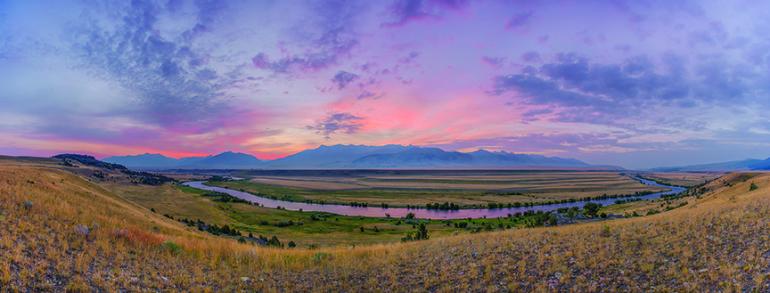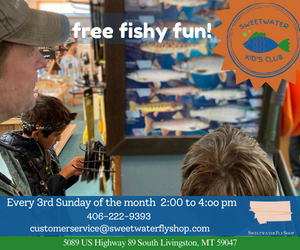Wanna Use the River? Get Ready to Pay Up
Back in July, while you were floating lazily down the Madison, you may have sensed a sucking feeling every time your wallet got near the river. That sucking feeling was the Montana Fish, Wildlife & Parks and Bureau of Land Management proposal to institute a special recreation permit on certain Madison River users.
Here's the deal: when you use the Madison river between the national forest boundary below Quake Lake and its confluence with the Jefferson River, you're generally either on BLM land or FWP land. BLM requires permits for group, competitive, or commercial activities on or near the river; FWP does not. BLM acknowledges that it does not really enforce its authority to require those permits, and thank goodness for that, because river users usually don't know whether they're on BLM or FWP land at any given point.
But there is some thinking to do: in particular, the agencies need to decide whether they'll use the same permit program or each have their own (which would not help the "am I on BLM land or FWP land?" problem). Regardless of how the permit process is structured, the FWP's current proposal is to require users to pay either $90 or 3% of gross income (or $4 per day per person for organized group activities), whichever is greater.
And who would have to get a permit anyway? The list isn't short: any group of more than 15 people (including Boy Scouts, fraternities, family reunions), whitewater-rafting groups; group floats of any kind; classes; shuttle services; anyone who gets a fee for going to the river (guides); any activity for which you could win a prize; any activity that has paid public advertising seeking participants; and even cattle drives. Nonprofits are not exempt from the permit requirement under the current proposal.
Whether the permit is a way to avoid confusion or generate revenue is hard to tell. And although paying to use land that already belongs to us seems backward, the anarchy we've seen on the Madison some weekends is enough to see the benefits of thinning out the crowds a bit. "If people are making money from these rivers, they're impacting the sites and they should help pay for the upkeep," says Mel Frost, FWP spokesperson. For more about the status of the proposal, visit fwp.mt.gov.






